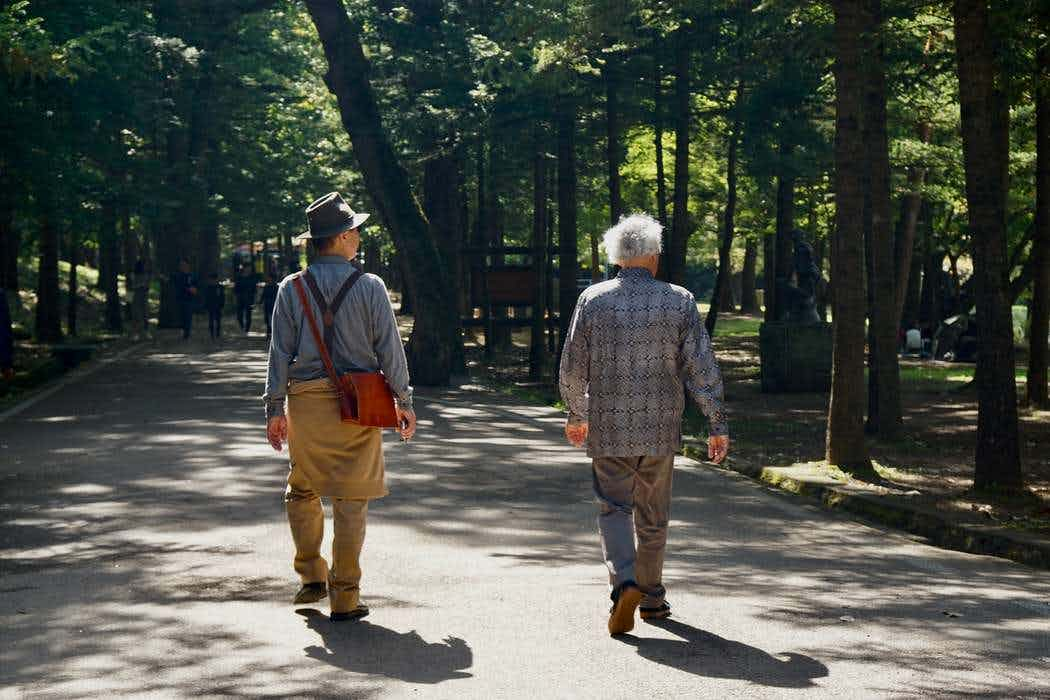Have your friends turned into "ghosts" during lockdown? Or have you realised that without the activities you used to do together, you have nothing to talk about? Or perhaps they just didn't show up the way you thought they would?
Whatever the situation, if you are reconsidering some of your friendships, you can do a couple of things. These things range from confronting your friends (in a positive manner) to getting new friends.
The ghosters
Ghosting is a term used to describe someone going MIA on you without further explanation. Often this happens when dating someone who doesn't feel like breaking it off (or don't know how to), so they disappear.
Ghosting can happen in many different situations, however. For example, maybe a client of yours suddenly stops getting in touch. Or perhaps a friend that always used to call one-day stops. Sometimes this happens overnight; sometimes, there's some kind of fade-out phase.
The important thing when this happens? Don't make assumptions. Instead, ask outright what's up if you value the person and would like to keep them in your life. People are sometimes dealt with a family tragedy, fall ill, get incredibly busy, or hit a stumbling block they don't know how to deal with. All these things can make people retract into themselves or distance themselves from others.
Lockdown was hard on many people.
During lockdown, some people became depressed due to a lack of face-to-face interactions. Sadly, once depressed, people often choose to isolate even though the opposite would be beneficial. They may feel shame or suffer from not feeling anything at all, meaning they don't feel like picking up the phone and calling people either.
Other people suffered incredible financial losses during lockdown. This can also cause depression, as well as shame. When people feel ashamed, they often fear others will look down on them. Hence, they withdraw.
Yet other people lost loved ones to Covid-19, as well as other diseases, during lockdown. While mourning, some people distance themselves from others. Like the above, it can cause depression.
It can, of course, also be that a person has moved on. As we age, we change. We realise we don't feel the same way we used to do about people. Growing in different directions is a natural part of life, sad as it may be.
If one of your friends has withdrawn, ask them outright if they would like to keep the friendship alive? Tell them you value their company and miss them. Ask them to be honest with you. Sign off the message (or explanation over the phone or in-person) by telling them you hope they are alright.
The people you have nothing in common with
It's one thing to hang out at the stables and go riding together with someone, another trying to hold a conversation with them on the phone.
Some people we know, we know because we have shared interests or environments. The people you have a pint with after work and talk shop with might not necessarily provide stimulating conversations in other environments.
If you feel this is the case with someone, limit the time you spend with them or exclude them from your life. Some people are great acquaintances but terrible friends, even if they are good human beings.
The people who haven't been supportive
From time to time, we expect someone to turn up in a way they don't. For example, you might have told someone you found the isolation hard to deal with during lockdown, yet they didn't call very often.
There are a couple of things to consider with this. Firstly, as above, don't make assumptions. They might have been having a hard time in other ways. Even if their job didn't go down the drain, they might have had a miscarriage, or their daughter might have. A plethora of different things could have happened that you have no clue about. Bear that in mind when confronting them.
Secondly, consider if you asked them outright for what you wanted? Often we assume people know, but everyone's different from us and want and need different things. Some are more intuitive than others, making our lives easier, but do beware of asking for what you want. If you don't ask, don't expect it to happen.
If you want these people in your life and feel you can't move forward without addressing the issue, then address it. Tell them that you feel hurt because of x, y, z and ask if they realise? Frame it up by telling them that chances are they don't know, and that's why you want to talk to them. What you don't want to do is start accusing them of something they may not even know has upset you.
Remember that clear communication is the bridge for anything to happen. Blame, anger and accusations, on the other hand, tends to break that bridge. Explain how you genuinely feel, that you are hurt but that you appreciate the other party might not have realised they did anything to hurt you in the first place.
If someone hurt you intentionally
If someone has a poor attitude or did something to upset you purposefully, you have to confront them. Again, you can cut the anger and blame, but be honest. Tell them you are not going to tolerate it. Also, ask if you did anything to cause them to act that way while still letting them know you don't condone the behaviour.
In short, don't take s**t from anyone, but don't turn into a s**t yourself while telling them so!
If you decide to move on
If you decide to move on, there are lots of great ways to make new friends, including:
- Doing voluntary work in a field you enjoy (as a bonus, voluntary work is likely to feed your soul, too)
- Starting a small business venture, such as selling jam, or second-hand teacups, at the local market
- Joining organisations in your area
- Taking classes and trying out new activities, including online activities
- Joining Meetup Groups (there tends to be one for everything—from tea lovers' meetups to hiking meetups—and plenty of online events as of late)
- Getting involved in the local community
- Organising dinner parties where your friends bring their friends
- Checking local pubs and coffee shops for events they host
- Attending speeches, lectures and workshops
- Joining sites like Bumble, where you can meet new friends
- Joining Facebook groups in your area
- Organising events, such as country walks, chess meetups and what have you (as with the dinner parties you can invite friends of friends, as well as advertise in local shops)
- Join an amateur theatre group, a poetry society, a book club, or similar
Don't ever think that you can't make new friends. You shouldn't put up with some people just because you're scared you won't meet new people.
In closing
Honest and heartfelt communication where you take responsibility for your own emotions and assumptions is usually the best way forward—especially when dealing with close friends whose friendship you value. That way, you can resolve pretty much any issue that can be resolved.
If, on the other hand, you feel that lockdown has shown some people to have an awful character, then it's time to move on. And as mentioned above, there are plenty of ways to do so.









